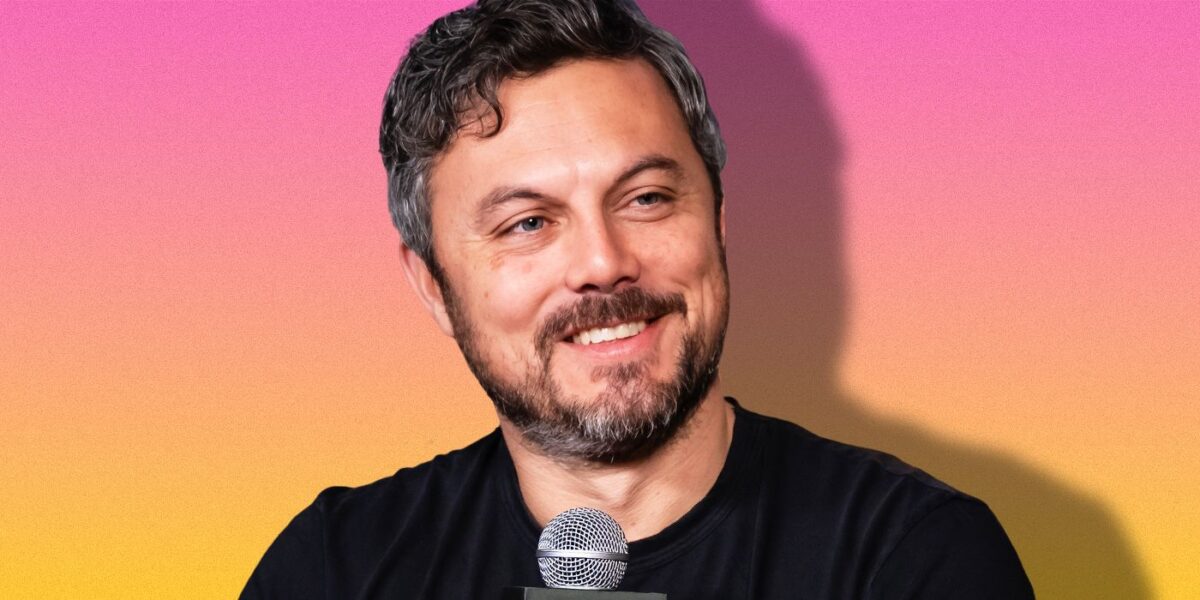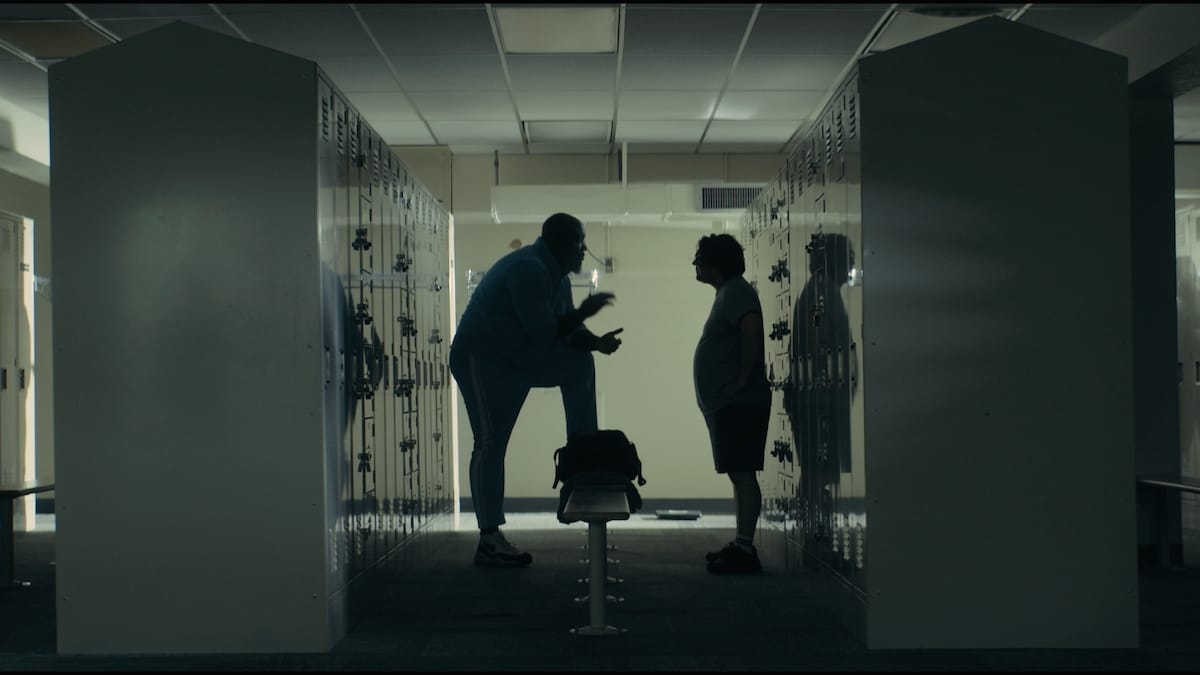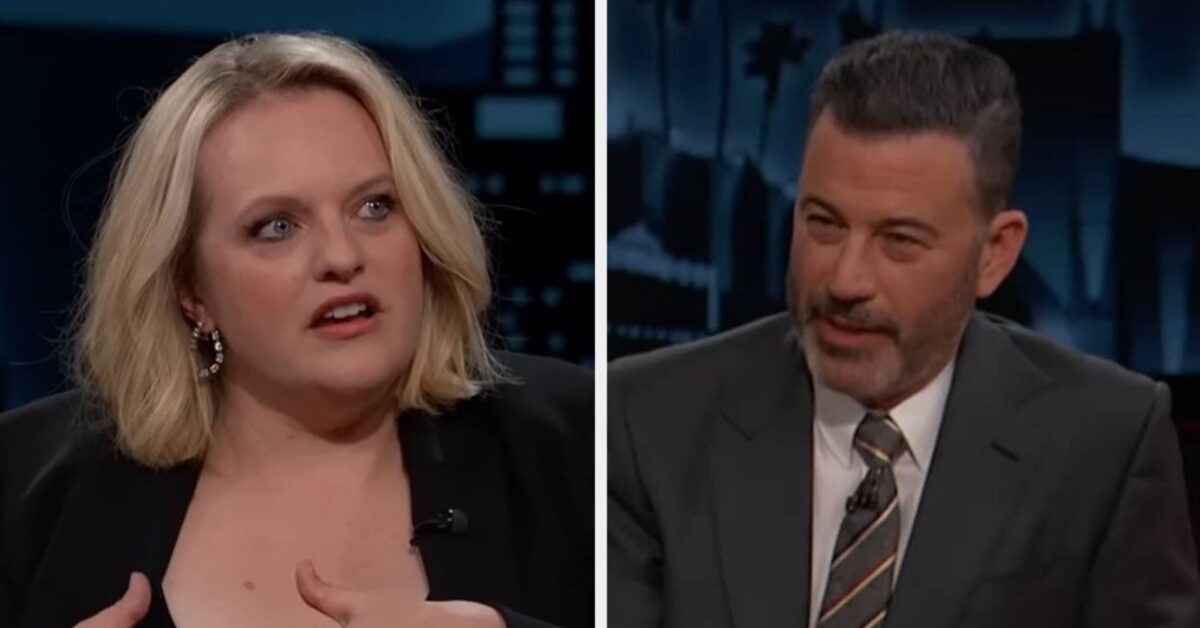
Director of The Hotly Anticipated UFO Doc ‘Age of Disclosure’ on Speaking With Government Officials About Aliens
Mar 27, 2025
Summary
Collider’s Steve Weintraub talks to filmmaker Dan Farah about his documentary The Age of Disclosure at SXSW 2025.
The film covers an 80-year cover-up of non-human, intelligent life by the U.S. government, featuring credible high-level sources sharing sensitive information.
Farah discusses taking a bipartisan approach to the film, speaking with 34 officials on the subject, scientists’ take on the technology, and more.
Are there other life forces out there in the galaxy? Do aliens actually exist beyond the confines of science fiction? You’ve likely engaged in these debates with friends, but documentary filmmaker Dan Farah is here to tell you with his directorial debut, The Age of Disclosure.
The documentary, which world premiered at the South by Southwest TV and Film Festival, insists there is no doubt about the existence of non-human, intelligent life—and the government is concealing this fact. Don’t look at him, look at the high-powered government agents, officials, and politicians Farah interviewed in this insightful feature about the United States’ history of covering up alien life forces, featuring unprecedented testimony from influential figures.
At the SXSW 2025, Farah stopped by the Collider Media Studio at the Cinema Center to talk with Steve Weintraub about The Age of Disclosure. During their conversation, he discusses unearthing government information, taking a bipartisan approach to the issue, and the potential long-term impacts of his journalistic research. Check out the full interview in the video above or in the transcript below.
‘The Age of Disclosure’ Reaches Out to 34 “High-Level” Officials
“It’s a film that answers a lot of questions for millions of people around the world.”
COLLIDER: The trailer is out there, so there are people who know about it, but there are a lot of people who know nothing. What is your documentary about?
DAN FARAH: The Age of Disclosure is a pretty unprecedented documentary where I interview 34 high-level government, military, and intelligence officials who break their silence and reveal that there’s been an 80-year cover-up of the existence of non-human, intelligent life. On top of that, they reveal that the U.S. is actually in a high-stakes, secret Cold War race with other nations to reverse-engineer technology of non-human origin. The stakes in this race could not be higher. It’s a film that answers a lot of questions for millions of people around the world, like myself. I grew up watching movies like E.T. and Close Encounters [of the Third Kind] that piqued my curiosity and made me wonder, “Are we alone in the universe? Does the government really know more about this than we the public know?” I made the doc in pursuit of the answers to these questions, and investigated the truth. What came out in these interviews was surprising.
There’s been a lot of stuff about UFOs and UAPs, and the people that are talking are not credible, but the thing about your doc is that these are real government people who have been working. I’m not a fan of Marco Rubio, but he’s in the doc, and he has things to say. He adds a lot of believability when he’s willing to talk about things like this. Talk a little bit about the people who are in the doc and their credibility factor.
FARAH: I was determined to make the most credible, non-sensational, serious documentary ever made on this topic. To set a very unique, unprecedented bar, I basically decided I was only going to interview people who have direct knowledge of this topic as a result of their work for the U.S government. That set this bar at extremely credible, extremely informed—not just some guy with an opinion or a theory. Every single person is aware of very sensitive, very classified information, but they also are aware of information that they can lawfully disclose, information that they’ve typically been discouraged from sharing, but they did have the ability to lawfully disclose.
I found my way to people, high-level officials in the government, military, and intelligence community who have direct knowledge of this topic and made them comfortable opening up in this documentary with what they could lawfully disclose. The most meaningful reasons they did it was they all felt a responsibility to bring out some of the truth to the public, to the extent they legally could. They felt the weight on their shoulders, and the film presented them with a comfortable and safe opportunity to do so because I was lining up so many interview subjects that there was strength in numbers. No one person had to go out on a limb and put themselves out there alone. They were surrounded by dozens of other high-level people. Every single person in this film is aware of a lot of information they could never legally disclose. When you watch the film, and you think about that, you see how much they reveal, and you think about how much more there is, that’s a pretty wild thought.
Why Hasn’t There Been More Information Released Before Now?
“This has been the greatest disinformation campaign in the history of the U.S government.”
Image via SXSW
That’s something I want to know. It’s very possible, probable, that we have been encountering UAPs for a very long time. Why do you think it is that more footage or more information has not come out over time? By the way, I’m a firm believer. The film does an amazing job at explaining the UAPs, which I found fascinating. It’s pretty obvious they’re here. I’m curious, why, with all the people that have worked on it through all the years, do you think more has not come out?
FARAH: One of the things that was consistently said by my interview subjects is that this has been the greatest disinformation campaign in the history of the U.S government. Historically, people have had their lives threatened, people have had their credibility threatened, their reputations threatened, and that has ruled the day.
One of the subjects in your doc is part of a disinformation campaign to quiet him, and it just proves what’s going on. There are obviously people in the government who are researching all this. How many people do you think are actually working on UAP stuff in the government? Did anyone tell you?
FARAH: I think a lot more people touch this topic day-to-day than the public has any awareness of. A good analogy would be that thousands of people worked on the Manhattan Project, and no one knew about it. To put that in perspective, that was in a totally different time period when there were more budget restraints. Now, there’s a lot more money the government has access to. If you come out of the Manhattan Project and you say, “Hey, in hindsight, it turned out there was a mole there; this time we’ve got to do it more secretively,” you would understand what the security around a program like that would just be unprecedented.
I’m sure that people told you stuff off-camera that you could not talk about in the doc. Are there any things that you can share, or is it one of these things where they really told you off-camera?
FARAH: I took a very journalistic approach to this whole thing and just did investigative research, investigative interviews to pursue the truth. I did get told a lot of information from sources on the side that I said I wouldn’t reveal publicly, so I’ll stick to that honor. But I had incredible support behind the scenes, not only from the people in the film, but from a number of very high-placed government, intelligence, and military officials who could never be in the film at all, but wanted to help, and felt the film was really important, and opened doors for me, checked information for me. There were some people that I was sent to do interviews with who, once I got perspective from some other people, I was like, “Okay, I’m gonna leave them out.” I had a lot of support for making sure that this thing was bulletproof, and that it could be evergreen and really make a difference.
This May Be “the Most Bipartisan Issue of Our Day”
Farah says officials like Marco Rubio and Senator Kirsten Gillibrand “went as far as they possibly could.”
Image by Photagonist
Like I said, I disagree with Marco Rubio’s politics, but he’s a smart individual.
FARAH: He’s amazing in the film.
What was it like getting him? Because, as the documentary points out, a lot of politicians for many years would not touch this subject because it was like poison to their future, but now it does feel like the tide is turning, and politicians are willing to embrace this, because it is a national security threat for the entire planet.
FARAH: First off, Secretary Rubio has been amazingly supportive, and he’s one of the most informed people in our government on this topic. Before being named Secretary of State, he was the vice chairman of the Senate Intelligence Committee, which is the committee that all the intelligence agencies come and report to on a regular basis. The chairman of that is [Mark] Warner from Virginia. Rubio and Warner are privy to more classified information on this topic than any of the Senate. Given the fact that he is privy to all that information, it says a lot about how serious he’s taking this, and he clearly thinks this is an extremely important issue. He says on camera in the interview that, in the past, it wasn’t worth a senator or a leader sticking their neck out on this because they would be called crazy, or this or that. If you really unpack his words, he’s saying that in the past, it wasn’t worth it. He’s like, “The situation we’re in right now is worth sticking my head out, and making sure I inform people to the extent I can.” It’s a really serious situation.
One of the things about Trump is he has such a loose mouth in terms of everything. I’m wondering, it’s just how long before he wants to start talking about this.
FARAH: I’ve been told that the new administration is bullish on bringing the truth out. I’ve also been told that they’re factoring in my film to that process because of how significant it is, and how bipartisan it is. In a lot of ways, it does the job for them. The topic is certainly, from my experience with my interview subjects, many of them said that they thought this was the most bipartisan issue of our day. Republicans and Democrats were saying things like, “We don’t agree on anything except for this.” In fact, the day I interviewed Secretary Rubio, right after it, I interviewed Senator [Kirsten] Gillibrand, a leader in the Democratic Party, she’s on the Senate Armed Services Committee, and she ran for president once, just like Rubio did.
That day was the epitome of showing how bipartisan the topic is. I didn’t end up including it in the film, because I had the challenge of trimming it down to a reasonable runtime, but they both said on camera that… Rubio said, “I don’t agree with much Senator Gillibrand has to say except for this,” and Gillibrand said, “Me and Mr. Rubio don’t agree on much except for this.” They’re literally articulating how important it is. As a journalist, I think you’ll find this interesting: these weren’t, like, 15-20-minute interviews. Typically, if someone’s trying to get time with a Rubio or a Gillibrand, you’re lucky if you get 15 minutes, and it gets rescheduled 20 times. These were hour-plus interviews where they went as far as they possibly could. It’s pretty fascinating.
Image by Photagonist
I agree with Gillibrand in terms of I don’t agree with Mr. Rubio, but if we can agree on this, that’s fantastic.
FARAH: I think we’re lucky that someone who’s at that level, Vice Chairman of the Senate Intel Committee, and now Secretary of State, is willing to ignore any stigma that still exists around the topic or any kind of reputation damage he might worry about getting by talking about this. He’s ignoring that, and he’s doing it in the best interest of the public, and I think that’s pretty damn admirable.
Again, him being in this film, along with all the other people you interviewed, adds a lot of credibility.
FARAH: Absolutely. I’m so grateful for it.
The film is for sale at SXSW?
FARAH: We’re figuring out the commercial distribution now, talking to distributors. There are a lot of interested parties. We’ve got another screening on Tuesday at 6 p.m. in the Paramount Theater, which is extra special for me. I don’t know if I told you this, but the last time I was at Paramount was in 2018. I was one of the producers of a movie called Ready Player One, and we premiered at the Paramount opening weekend of SXSW—it was actually Sunday, as well. [Steven] Spielberg came, and it was a crazy, surreal experience for me, being in the Paramount [Theater], Steven being on stage, introducing the movie. So, it’s kind of surreal for me to return to the Paramount last night, also Sunday of opening weekend, to premiere The Age of Disclosure. It was pretty wild. Extra special.
Related
Christopher Nolan Was Originally Offered ‘Ready Player One’ Before Steven Spielberg?
Why didn’t he take on this property?
I’ve always seen those ships on the videos that are in the documentary, and I’ve looked at them online and they move incredibly fast. They go through the sky, and they go into the ocean. They do shit that nothing can do, and I’ve always been like, “This has to be fake. This can’t be real.” The doc really explains how a ship could do this. Do you want to talk about that?
FARAH: One of the things in the film that I’m really proud of is that two of the chief scientists from past government UAP programs break down, in a really digestible way, how this UAP technology works, and why this technology is able to do what it does. It was a really challenging scene because, when I filmed those interviews, at first they were talking at a scientific level that the average person wouldn’t be able to follow, and we kept running through it, and I kept thinking about just normal people like myself, and my friends and family I grew up with in Jersey. Can your average person follow this? Eventually, we ran through it a bunch of times and the scientists very quickly got to a place of explaining it in a way that’s so digestible and really makes sense. I’m really proud of that. It’s a key scene in the documentary.
Oh, 100%. I don’t want to say it’s the absolute explanation, but it’s a possible explanation, because it is possible that there’s something else going on that we don’t know. Your film makes it so that it’s science-explained.
FARAH: My takeaway from my interviews was that they are confident this is exactly how this technology is working. I’m curious as a viewer how this registered: I really went out of my way to make sure I wasn’t present in the film at all. You don’t hear me. You don’t see me. When I’m filming, I’m the one asking the questions and everything. My goal for that was to leave it only to these extremely credible people, and not try to inject my opinion into it. Because my opinion doesn’t really matter, right? I’m basically the audience.
That’s 100% true, because it’s them carrying the weight.
FARAH: Exactly. I’m just like the audience. I’m a guy with a bunch of big questions. It’s less about what I think. They definitely made it clear to me that this is how they think this technology works based on whatever knowledge they have.
Dan Farah Says There is No “Other Side” to This
“Just because you have experienced something, or it counters your current understanding of things, doesn’t mean it’s not real.”
Image by Photagonist
I really enjoyed this, doc. I want to be very clear about this, but I do think that there’s going to be some people who are going to say, “It’s all people that are believers, that think this is actually happening.” Was there any thought to having someone try to deny what they’re saying, show the other side of it?
FARAH: Yeah, but I don’t really view it as an “other side.”
You know what I mean? Like showing the “disinformation campaign,” if that makes any sense.
FARAH: No, because it’s just not what the movie’s about. It’s really about these people in the world who, as a result of their job, have learned information that the average person would consider a paradigm shift. All I was doing was creating a comfortable situation for those people to share with the world what they legally could. It wasn’t about like, “Hey, I want you to share this, and then I want to challenge what you’re saying, or tell you you’re a liar.” I just wanted to create involvement for these guys to speak up, and comfortably share their truth. The other thing to remember is, with these people, what would they have to gain by making this up? What would the Secretary of State have to gain?
No, totally. This is more me playing like the devil’s advocate.
FARAH: Here’s actually a great way to make this point. In the film, General Jim Clapper, who was our Director of National Intelligence, and former head of Air Force Intelligence, and he’s a Democrat, and Secretary Rubio, who was the vice chairman of the Senate Intel Committee, and was a lead in the Republican Party, so two guys whose political ideologies are different but both very senior and informed both made very similar points. Clapper said it’s hard for people to wrap their head around, or think about, or accept something they haven’t experienced. It’s human nature, right?
Rubio says it’s something that keeps him up at night, something in the human psyche that says, “I can’t prepare for or accept something that I haven’t seen someone do before.” He makes a point of saying that’s what leads to strategic surprise often—the idea that an adversary or some other party can’t do something or won’t do something just because they haven’t done it before. He said that has historically led to the biggest intelligence failures in human history, from Pearl Harbor to 9/11, and he doesn’t want that to happen. Clapper and Rubio are both making the same big picture point, which is, just because you have experienced something, or it counters your current understanding of things, doesn’t mean it’s not real, and doesn’t mean you shouldn’t be prepared for it and thinking about it.
Did you have a much longer cut? Did you have a cut that was like three hours, and you’re like, “This is fucking perfect!?”
FARAH: Oh, yeah. My first director’s cut was like four and half hours long. It was the biggest challenge in the world just to get it under two hours, and then getting it down from two to one hour and 49 minutes, where we landed. Incredibly hard.
According to Officials, It May Be Time to Explore the Depths of the Ocean
“It’s hard not to think back to movies like The Abyss and be like, ‘Oh, maybe James Cameron was onto something.'”
Image via 20th Century Fox
Do you have a cut that’s like two and a half, three hours that you would love to show people, or do you think that the version that is being this 1:50:00 cut is the one that everyone needs to watch?
FARAH: I feel like this is the one everyone needs to watch. You know that saying, like, “kill your darlings.” It’s tough choices you make in the edit room. Ultimately, I think it’s always for the better. It makes the thing move more. It’s tighter. I feel really great about where it landed. Maybe a scene or two I might add on a DVD or something. I still want to do DVDs, by the way. I don’t care how we distribute this movie, I want to do DVDs. [Laughs]
You should do a physical release. They’re the best.
FARAH: There will be some things I will probably put on some special features. I really am proud of where we landed. I feel really great about it. Anyone who’s questioning, I would definitely urge anyone to look at who these people are. Congressman [André] Carson, for example, a leader in the Democratic Party. He’s on the House Intelligence Committee, he’s the chairman of the House Committee on the CIA, he’s an extremely high-level, very informed guy, very smart, and he’s talking on camera about how this technology could be used for teleportation. He’s talking about otherworldly things. He’s talking about things that are interdimensional. He’s talking about it seriously with a straight face and from a place of awareness. He also is the Chairman of the first congressional hearing on UAP.
Listen, like I said, I’m a believer. You walk out of your doc, and it’s like, “Well, okay, they’re here.” By the way, let’s explore the oceans. Just throwing that out there. It’s amazing how we’ve not gone down there, but we’ve gone to space. It’s almost like no one wants to do it.
FARAH: Admiral Tim Gallaudet, in my film, who was the chief oceanographer for the United States, throws out some stats on camera that I think are eye-opening to people. We’ve got a better understanding of the details of the surface of the moon than we do our own ocean floor.
Why aren’t we going down there? It’s almost like there’s a concerted effort to not go down there.
FARAH: [Laughs] I would say so. For anyone our age, it’s hard not to think back to movies like The Abyss and be like, “Oh, maybe James Cameron was onto something.”
Special thanks to our 2025 partners at SXSW, including presenting partner Rendezvous Films and supporting partners Bloom, Peroni, Hendrick’s Gin, and Roxstar Entertainment.
The Age of Disclosure
Release Date
March 14, 2025
Runtime
109 Minutes
Director
Dan Farah
Producers
Dan Farah
Publisher: Source link
Jimmy Kimmel Was Left Visibly Stunned After Elisabeth Moss Told Him That A “Handmaid’s Tale” Crew Member Asked For The Underwear She Wore During Filming
I'm lost for words.View Entire Post › Disclaimer: This story is auto-aggregated by a computer program and has not been created or edited by filmibee.Publisher: Source link
Mar 31, 2025
Amazon Big Spring Sale: Best Anti-Aging Skincare Deals
Our writers and editors independently determine what we cover and recommend. When you buy through our links, E! may earn a commission. Some brands featured in this article are partners of Amazon's Creator Connections program, which means E! may make an…
Mar 31, 2025
Jenna Ortega Wore A Glass Dress That Has To Be Seen
"Sometimes there's pieces of it that are poking my ass."View Entire Post › Disclaimer: This story is auto-aggregated by a computer program and has not been created or edited by filmibee.Publisher: Source link
Mar 30, 2025
Elon Musk Sells X, Formerly Twitter, for $33 Billion to His AI Startup
Elon and the singer dated on-and-off for four years, starting in 2018. In September 2021, Elon told Page Six that he and Grimes "are, I'd say, probably semi-separated," adding, "It's mostly that my work at SpaceX and Tesla requires me…
Mar 30, 2025











